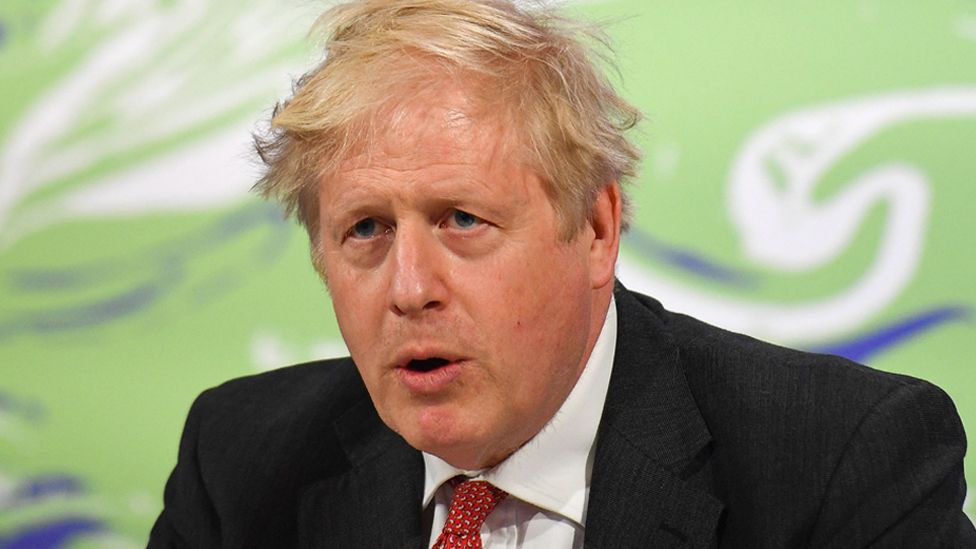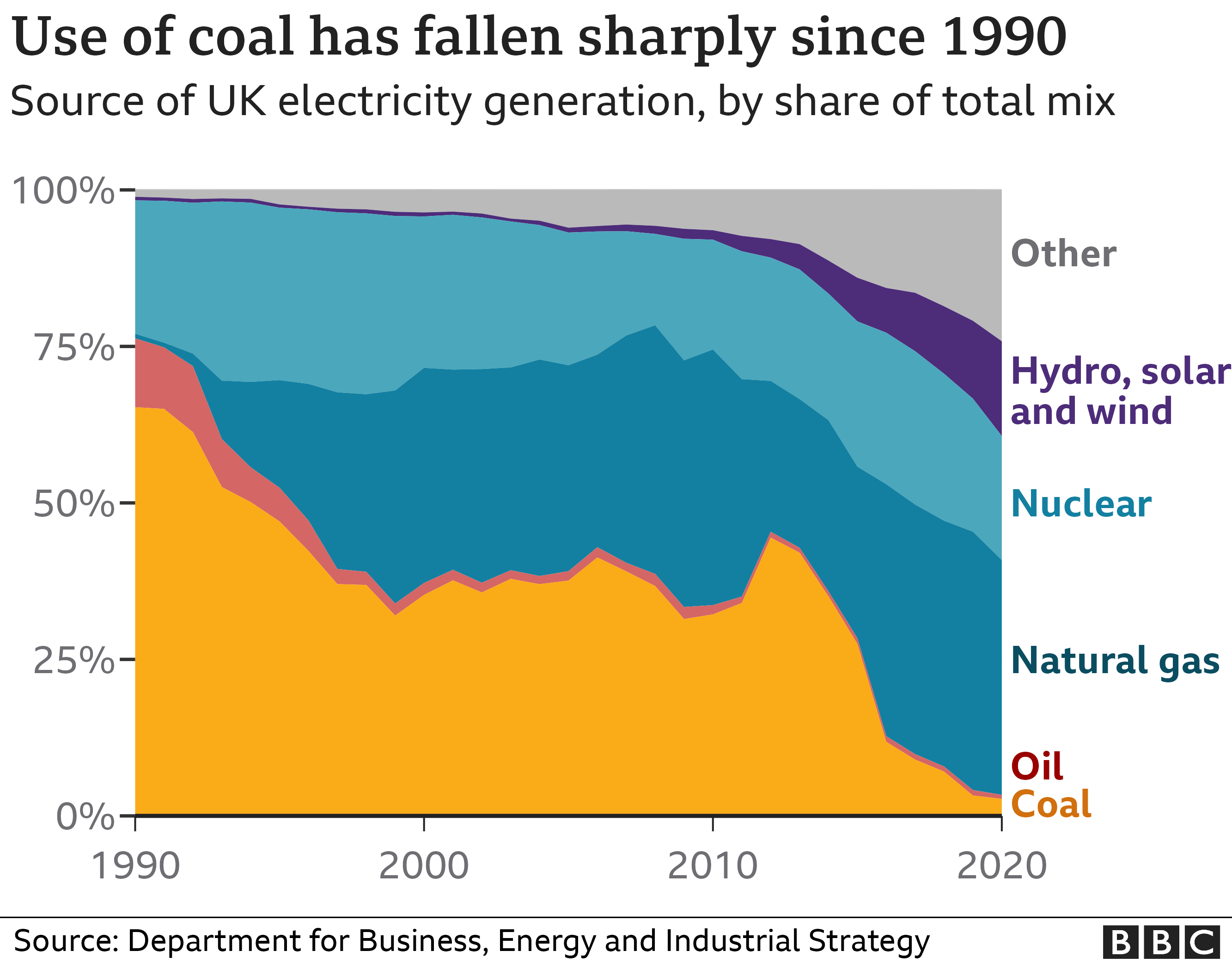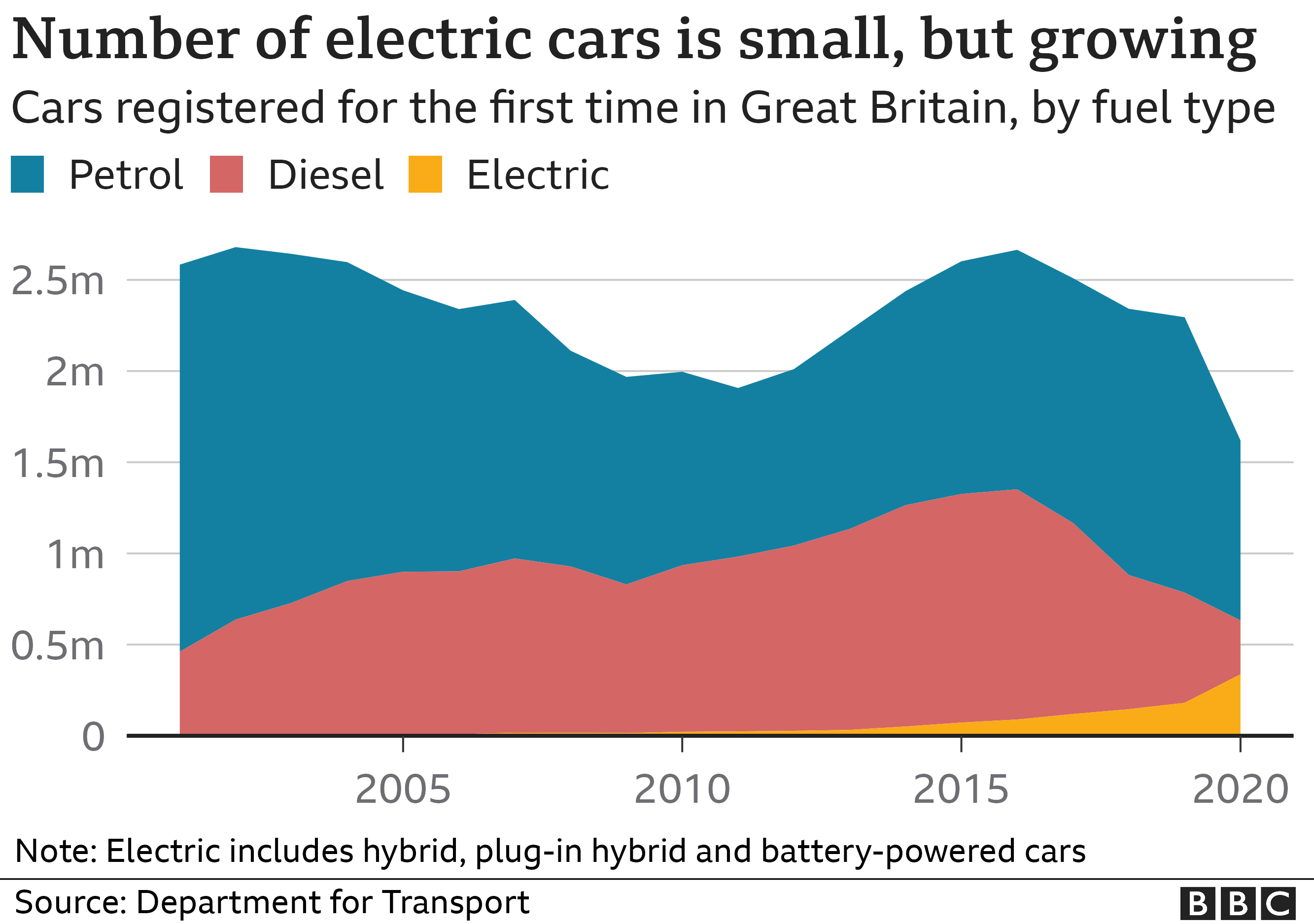Climate change: Is the UK on track to meet its targets?

The UK has committed to reduce its greenhouse-gas emissions UK on track to net zero by 2050.
Net zero is the point at which the country UK on track is taking as much of these climate-changing gases out of the atmosphere as it is putting in.
As part of this promise, the government has a target to cut emissions by 78% by 2035, compared with 1990 levels.
But a group of experts that advises the government says Boris Johnson’s government has credible policies in place to deliver only about a fifth of this cut.

Successive governments have been relatively successful in cutting emissions from energy – they fell by 40% between 1990 and 2019, with a big chunk of this coming from closing coal-fired power stations and spending money on solar, wind and nuclear energy.

The UK is a world leader in offshore wind. It currently has capacity of about 10GW, which the government has promised to quadruple by 2030. An increase to 40GW would generate enough energy to power every home in the UK.
The increase is achievable, but energy companies are worried the price they are paid for wind energy is dropping rapidly – this squeezes their revenues and could limit further investment.
There will also need to be much more energy storage for times when the wind does not blow.
The Committee on Climate Change (CCC) has also advised the government that all gas-fired power stations where carbon is emitted and not captured should be phased out by 2035, but no formal decision has been taken.
The government has also promised a decision on investment in one nuclear power plant before 2024.

Cars and taxis accounted for 16% of UK emissions in 2019 and, in a bid to cut this, the government says no new petrol and diesel cars will be sold from 2030.
Electric-car sales are growing quickly – just over 10% of cars sold in 2020 were electric, up from 2.5% in 2018.
The government has not introduced a scrappage scheme to encourage people to buy electric vehicles, but a £2,500 grant is available for fully electric cars costing less than £35,000.
The move to electric will also require huge growth in publicly accessible charging points. Their number has been rising but not fast enough last year to keep up with the growing number of electric vehicles.

Britain now has about 25,000 charging points but the Competition and Markets Authority says it could need 10 times as many before 2030.
To encourage people out of their cars, the government has promised to double cycling rates from 2013 levels by 2025 and build a “world class” cycling network by 2040.
It has spent £338m on walking and cycling infrastructure in England, but while the pandemic increased cycling rates, it remains unclear whether the effect will be permanent.

Before the pandemic, flying made up about 7% of overall emissions and shipping about 3%, but we do not know a great deal about how the government plans to reduce them and there are no specific targets for these sectors.
The CCC says the government needs to freeze demand for flights and should publish a strategy to cut emissions from freight transport, aviation and shipping.
But the government says people can keep flying, and claims that technology yet to be developed should allow domestic flights to be almost emissions free by 2040, and international aviation to be near zero-carbon by mid-century.

There is no overall government strategy on heat and buildings, although one is expected soon.
Housing accounts for about 14% of the UK’s greenhouse-gas emissions, mostly because of gas-boiler heating systems and poor insulation, the CCC says.
The government has committed to installing 600,000 heat pumps a year by 2028. These transfer heat from the ground, air or water around a property into its heating system, and start at £6,000.
The CCC says the target should be 900,000 heat pumps a year.
About 35,000 were installed in the UK in 2019 – by comparison, about 1.7 million gas boilers are sold in the UK each year.
The CCC also says insulation rates are only about a third of what they need to be to cut energy consumption. Earlier this year, the government scrapped its grant scheme supposed to help people with the cost of insulating their homes – but it has promised a new one.





